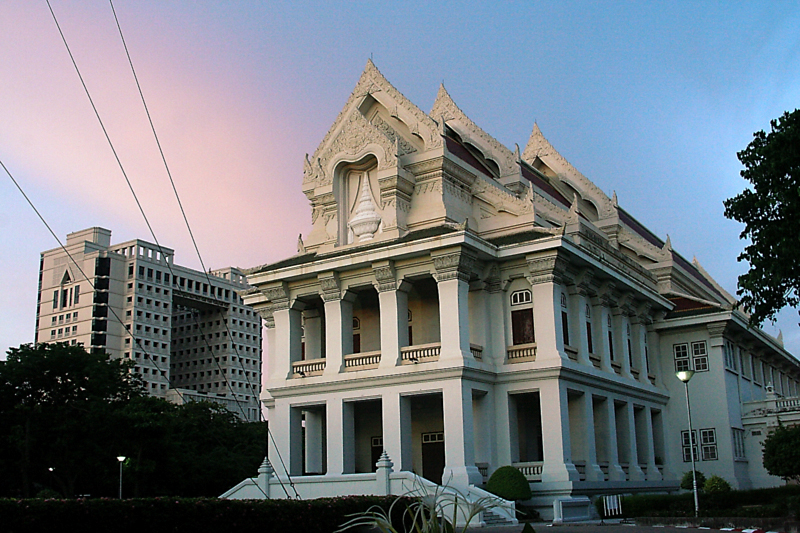This paper examines the ways in which Thai undergraduate students in Chulalongkorn University find, evaluate, manage, and apply the needed information for doing their course-related assignments and everyday life research. The information literacy behavior studied includes the undergraduates’ use of information resources, evaluation of information, research styles, and difficulties encountered during research practices. The survey instrument originally developed by Project Information Literacy of the University of Washington Information School was used as the basis for designing a questionnaire of this study. The questionnaire, then, was distributed to sophomores, juniors, and seniors enrolling at Chulalongkorn University. The sample for the student survey was 378 respondents from 18 faculties. Data collection was completed by the end of March 2011. Overall an 89.9% response rate was achieved. The findings of this study indicate that the most frequent source of information the majority of the undergraduates used for their course-related assignments and everyday life research is search engines. Most undergraduates always pay attention to credibility of library materials and web content when evaluating information in hand. Regarding the survey respondents’ research styles, they usually make action plans and create search terms before writing term-papers. They also have problems with deciding what to do at the early stage of research process, narrowing down a topic, and determining credibility of information resources.
Somsak Sriborisutsakul is an assistant professor in the Department of Library Science at Chulalongkorn University, Thailand. His research and teaching interests are in knowledge management for library and information professionals, evaluation of information services, and organization of information resources. Dr. Somsak earned his PhD in information studies from the University of Sheffield.
Chindarat Berpan is an assistant professor in the Department of Library Science, Faculty of Arts, Chulalongkorn University, Thailand. Her research interests focus on the areas of information services and information repackaging.
Dr. Oranuch Sawetrattanasatian is a lecturer at Department of Library Science, Faculty of Arts, Chulalongkorn University. She has a Bachelor‘s Degree (1st Class Honours) in English and a Master‘s Degree in Library and Information Science from Chulalongkorn University. She also holds a PhD in Communication (specializing in Information Studies) from University of Canberra, Australia. Her research interests embrace web technology, information literacy, and collection development.
Duangnate Vongpradhip is a lecturer at Department of Library Science, Faculty of Arts, Chulalongkorn University. She graduated in M.S. Computer Science from Pratt Institute. Her research interests are information technologies and web technology.
Nenuphar Supavej graduated in Bachelor of Arts (second honor) at Chulalongkorn University, Thailand in 1999. She gained Master of Science in Information Science from University College London, United Kingdom in 2001. Currently, she works as a lecturer at Department of Library Science, Faculty of Arts, Chulalongkorn University. Her research focus is on information technologies for information work and records management.
Wachiraporn Klungthanaboon has a BA (second honor) and a MA in Library and Information Science from Chulalongkorn University. In 2010, she also earns a joint MA in Digital Library Learning from Oslo University College (Norway), Tallinn University (Estonia) and University of Parma (Italy). She is studying a research degree at the Humanities Advanced Technology and Information Institute, University of Glasgow.
Saowapha Limwichitr holds an M.A. in Library and Information Science. She is currently working as a lecturer in the Department of Library Science at Chulalongkorn University. Her research interests are in management of library services in changing environment and knowledge management practice in libraries and information centers.
Information sources used for assignments – only 9.2 % students used library as the source for information. #P113 #iatul2012
— IATUL 2012 (@iatul2012) June 4, 2012
#iatul2012, #P113, Project IL survey instrument
— Tina Hohmann (@guacamole37) June 4, 2012
Information literacy defined. #P113 #iatul2012
— IATUL 2012 (@iatul2012) June 4, 2012


